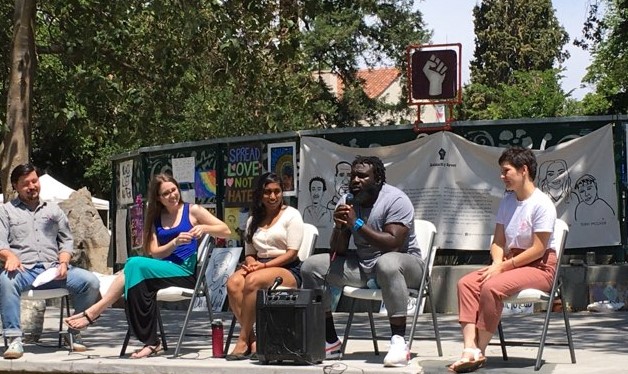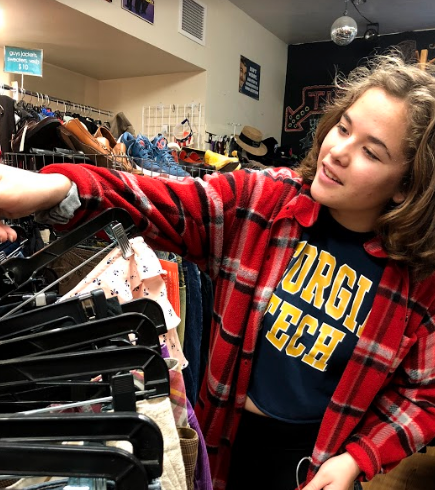Advocate Suleman Anibaba Paves the Way for Black Mental Health Awareness
PHOTO: Anibaba leading a panel discussion at Central Park on how to create a more positive and inclusive community
By Krisztian Anderson
BlueDevilHUB.com Staff–
In 2000, Suleman Anibaba was a Davis High student. He was on the varsity soccer team. He had some friends, but often felt lonely. He also struggled with his mental health – but no one ever talked about it.
“I don’t even think it was even a pain at the time. It was no mention of it. Like, there was no mental health ever mentioned,” Anibaba said.
Two decades later, Anibaba has emerged as a fierce mental health advocate for Black men.
Born and raised in Nigeria, Suleman Anibaba first moved to Davis in 1999, went to DHS and graduated in 2004.
A pivotal moment came during his sophomore year when 9/11 struck, adding another layer of complexity to his identity as a Black Muslim immigrant.
“During 9/11 in this country, it was terrifying for everyone, but mostly, I’ll say, for me. It was really scary to try and navigate Davis,” Anibaba said.
The aftermath of the tragedy left him isolated, causing him to feel unsafe and having to deal with the weight of intersecting identities.
“I spent a lot of time by myself that year, kind of just hiding in the library a lot. Emotionally, I just felt like something was off. I felt very unsafe,” Anibaba said.
But in Anibaba’s life, this sense of insecurity didn’t end here.
Anibaba’s passion for soccer took him to UC Davis, but his athletic identity, once a source of joy, turned into a battleground for his mental health.
While attempting professional soccer tryouts in Germany, he faced depression, alcohol problems and suicidal thoughts.
“I also had seasonal depression and I just didn’t feel like I belonged,” he said.
The realization that he needed the help and support of a mentor marked a turning point.
“I realized that it will help opening up to someone that’s older than me and someone that is smart and successful in (the soccer industry),” Anibaba said.
He emphasizes the importance of breaking the stigma surrounding mental health and seeking assistance.
Anibaba says there are very limited mental health resources available for the Black community in Davis.
“When I destroyed my knee and had all these mental health struggles, a space where someone that looks like you, thinks like you… and is there for you is so important,” he said.
Most therapists were white women during that time, which led to Anibaba’s decision to get his degree in marriage and family counseling.
“I wanted to represent and be that person of color to sit up for whatever is going on, with any struggles,” he said.
He now works for UC Davis as a student-athlete adviser.
DHS sophomore Fares Nassar noted that he feels like there hasn’t been much progress for Black mental health.
“If you are a person of color and are having mental health issues, there isn’t much help at the moment,” he said.
Suleman and his wife, Kate Mellon-Anibaba, have tried to help this issue by creating a space in Central Park called Solidarity Space. Its purpose is “for folks to become more inclusive and to give exposure to maybe less understanding people,” according to Anibaba.




